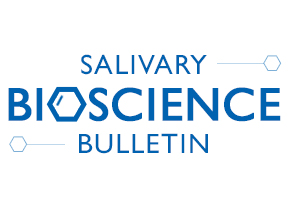Drop Date: August 2009
SBB – Salivary DNA Sequencing for Genetic Markers
In This Drop: What Will You Discover Today?
 Current theory suggests that studies in health, behavioral, and developmental sciences will benefit from the adoption of investigative approaches that are both multi-system and multi-level in nature. Since its inception a decade ago, Salimetrics has worked to develop a range of non-invasive salivary assays that fulfill the requirement for measurement of multiple biological systems on the physiological level. Given the tremendous advances in genetic research that have taken place in recent years, including the discovery that DNA can be collected and characterized from saliva, the addition of a genetic level of investigation is now proving to benefit many researchers who work within these topical areas.
Current theory suggests that studies in health, behavioral, and developmental sciences will benefit from the adoption of investigative approaches that are both multi-system and multi-level in nature. Since its inception a decade ago, Salimetrics has worked to develop a range of non-invasive salivary assays that fulfill the requirement for measurement of multiple biological systems on the physiological level. Given the tremendous advances in genetic research that have taken place in recent years, including the discovery that DNA can be collected and characterized from saliva, the addition of a genetic level of investigation is now proving to benefit many researchers who work within these topical areas.
In recognition of the opening of the new Salimetrics DNA Analytical Service, we are devoting this issue of The Spit Report to the study of salivary DNA. Featured are some important initial papers that have already demonstrated the advantages of using a multi-system and multi-level approach to research. This more fully integrated approach is likely to become the norm rather than the exception. We welcome the opportunity to enable investigators to learn more and to participate in this exciting endeavor.
Technical Advice
Collecting and handling saliva for DNA analysis.
Proper saliva collection and handling techniques make possible genetic and biomarker analyses from a single sample.
*Salimetrics provides this information for research use only (RUO). Information is not provided to promote off-label use of medical devices. Consult full text of article.
This Just In…
New DNA Analytical Service
Salimetrics has added a DNA Analytical Service to the company. Our goal is to offer a service that can provide collection supplies, DNA extraction, polymorphism analyses (SNP and VNTR), and technical advice all from one convenient source. With our network of expert consultants and our staff of technicians experienced in analysis, we can provide valuable assistance in choosing the most meaningful and relevant SNPs for your project, as well as help in interpreting the results. By making this service available to researchers who might not otherwise have access to the necessary facilities and technical expertise, we hope they will be encouraged to include genetic analyses along with hormone and biomarker analyses in their research projects.
Spit Camps
Researchers in the behavioral, social, and health sciences continue to sign up for the two-day Spit Camp training sessions held at our facility in State College, Pennsylvania. These low-cost sessions are designed to introduce participants to the measurement of salivary analytes and the integration of salivary measures into their research projects. All participants attend lectures and group discussions led by Dr. Douglas Granger, along with hands-on training by our laboratory staff in proper sample collection and handling techniques and basic immunoassay procedures.
Spit Camps are not designed to provide the intensive training required for laboratory technicians, but such training can be provided separately by special arrangement.
The Spit Camps scheduled for State College in October and December are already full; however, additional sessions are planned for the Spring of 2010.
REFERENCES & RELATED RESEARCH
Common polymorphisms in the glucocorticoid receptor gene are associated with adrenocortical responses to psychosocial stress.
Wüst, S., Van Rossum, E.F.C., Federenko, I.S., et al. (2004). J Clin Endocrinol Metab 89(2): 565-73.
Highlight: Two common variants of the GR gene are shown to be related to altered cortisol responses to the Trier Social Stress Test.
A common polymorphism in the mineralocorticoid receptor modulates stress responsiveness.
DeRijk, R.H., Wüst, S., Meijer, O.C., et al. (2006). J Clin Endocrinol Metab 91(12): 5083-89.
Highlight: Cortisol and heart rate responses to the Trier Social Stress Test are enhanced in carriers of a common MR gene variant.
The heritability of hypothalamus pituitary adrenal axis responses to psychosocial stress is context dependent.
Federenko, I.S., Nagamine, M., Hellhammer, D.H., et al. (2004). J Clin Endocrinol Metab 89(12): 6244-50.
Highlight: HPA axis responses to moderate psychosocial stress are heritable and affected by context.
A psychobiological perspective on genetic determinants of hypothalamus-pituitary-adrenal axis activity.
Wüst, S., Federenko, I.S., Van Rossum, E.F.C., et al. (2004). Ann NY Acad Sci 1032: 52-62.
Highlight: A survey of some studies that examine the role that genetic factors play in the variability in cortisol production.
The heritability of perceived stress.
Federenko, I.S., Scholtz, W., Kirschbaum, C., et al. (2006). Psychological Medicine 36: 375-85.
Highlight: Perceived stress is in part heritable, and estimates of heritability may be affected by the scales used for assessment.
*Note: Salimetrics provides this information for research use only (RUO). Information is not provided to promote off-label use of medical devices. Please consult the full-text article.
 Contact: Salimetrics (USA)
Contact: Salimetrics (USA)